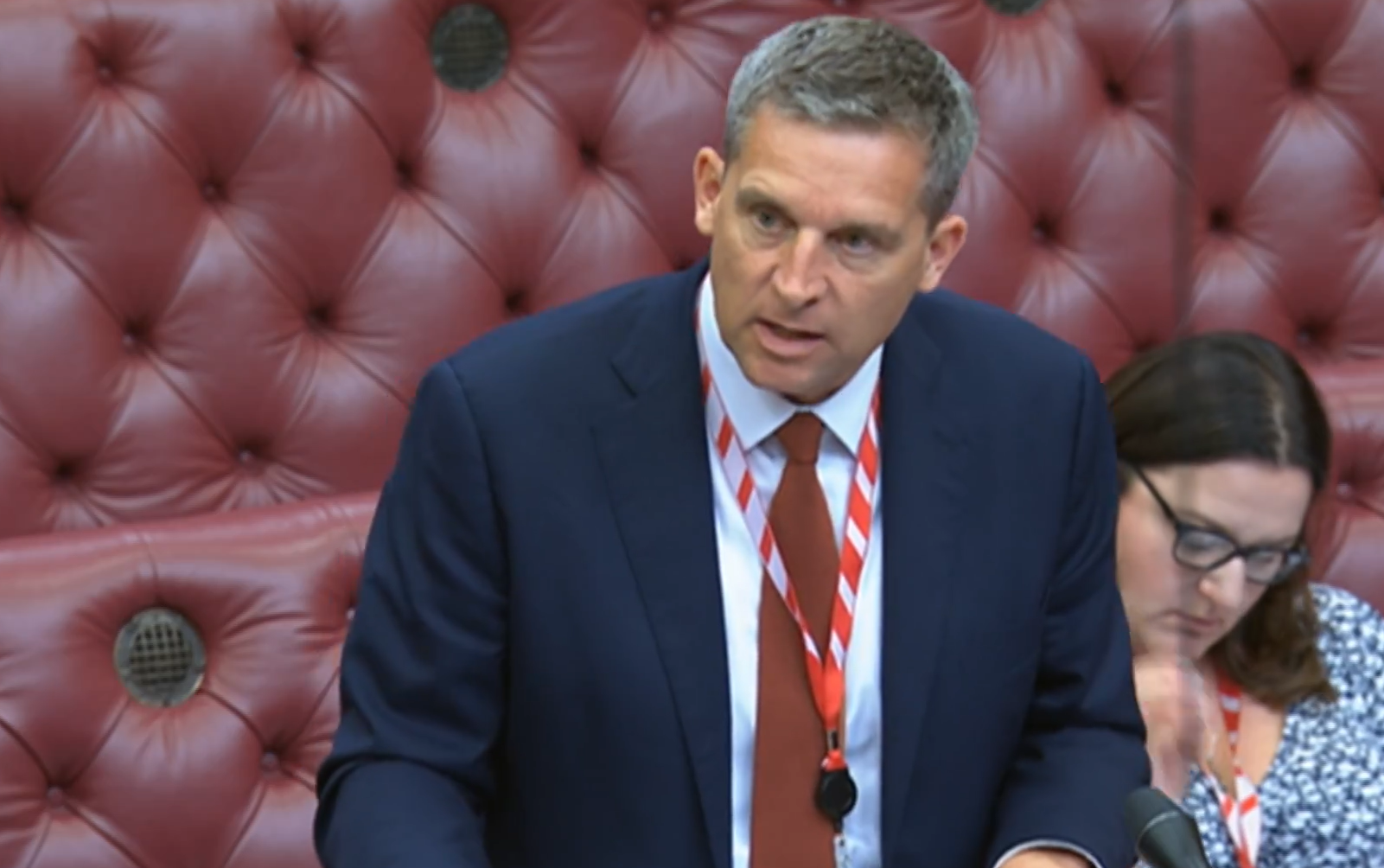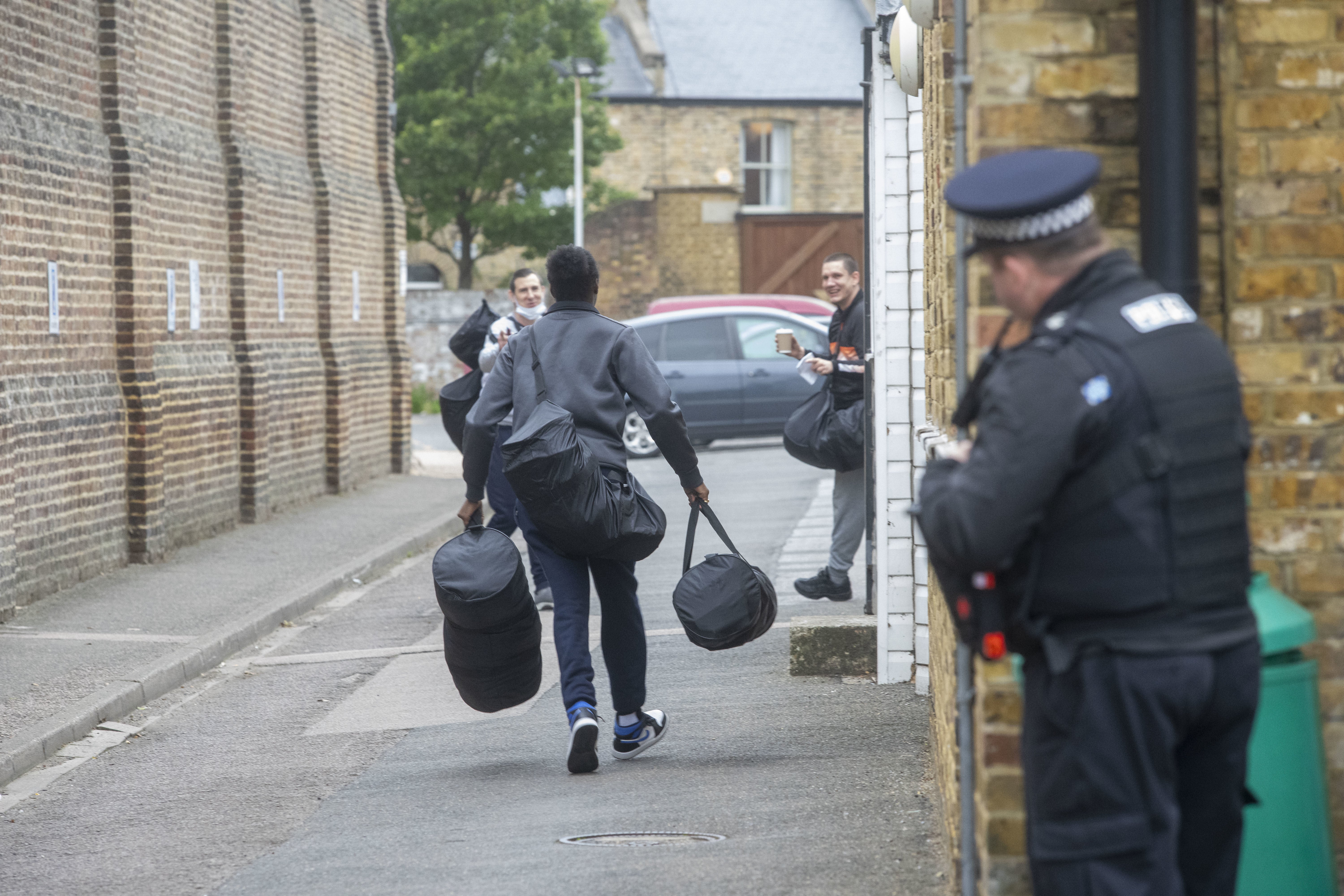Britain faced ‘total breakdown of law and order’ without early release of prisoners, minister claims
Prisons minister James Timpson has defended the government’s controversial scheme to free some prisoners after serving 40 per cent of their sentence

Britain faced a “total breakdown of law and order” if emergency measures to release prisoners early had not been put into action, the prisons minister has said.
In a speech to prison governors, James Timpson defended the government’s controversial decision to release inmates after serving just 40 per cent of their sentences to ease overcrowding.
He said the Labour government had inherited a prisons system which was “teetering on the edge of disaster” and had been “run at 99 percent capacity for months”.
“That’s why we had to take the tough decision to bring in changes to automatic release to ease the pressure on our prisons,” he told the annual Prison Governor’s Association conference in Nottingham.
“It was, quite literally, a rescue effort. If we hadn’t acted, the justice system would have ground to a halt.
“Courts would have been unable to hold trials and police unable to make arrests. We would have faced the total breakdown of law and order.”

So far, Labour’s early release scheme has seen around 1,700 prisoners released under measures reducing the length of time some inmates must serve in jail from 50 to 40 per cent of their sentence.
By the end of October, the total is expected to reach around 5,500, as more walk free from jails in England and Wales to free up prison cells.
At the start of the scheme there was criticism when pictures emerged of an inmate being sprayed with champagne by their friends at the prison gates as they were released.
The government handling of the scheme has been fraught with problems after it emerged that hundreds of prisoners were freed without tags despite the devices being a condition of their release.
Another prisoner was accused of sexually assaulting a woman on the same day he was freed. He has since been charged and recalled to prison ahead of a court date.
More recently, the Ministry of Justice confirmed that 37 prisoners in jail for breaching restraining orders were mistakenly freed after their offences were logged under outdated legislation.
Some 32 of them had been returned to custody but five remained at large when the MoJ admitted the error on 25 September.
Meanwhile, the scheme was branded a “slap in the face” to almost 3,000 prisoners languishing on abolished imprisonment for public protection (IPP) sentences, despite more than 700 having served at least 10 years longer than their minimum tariff.
Campaigners estimate releasing IPP prisoners would empty up to four entire prisons.
However Lord Timpson, who stood down as CEO of the Timpson Group when he was appointed prisons minister, insisted the emergency scheme helped to avert catastrophe when violent disorder erupted following the stabbing of three school girls in Southport this summer.
“Because we could deliver justice swiftly, we brought the violence to an end,” he added.

In his speech, he vowed to “rebuild and reform” prison system to reduce reoffending, including building more prisons, addressing staff retention, improving meaningful activity and education for prisoners and tackling scourge of drugs in prisons.
“We’ll accelerate the prison building programme, to make sure we have the cells we need,” he said.
“We’ll soon publish our ten-year capacity strategy, setting out how we will acquire new land for prisons, and reform the planning process.
“And, as you’re aware, we will carry out a review of sentencing - with a focus on how it both protects the public and reduces reoffending.”
